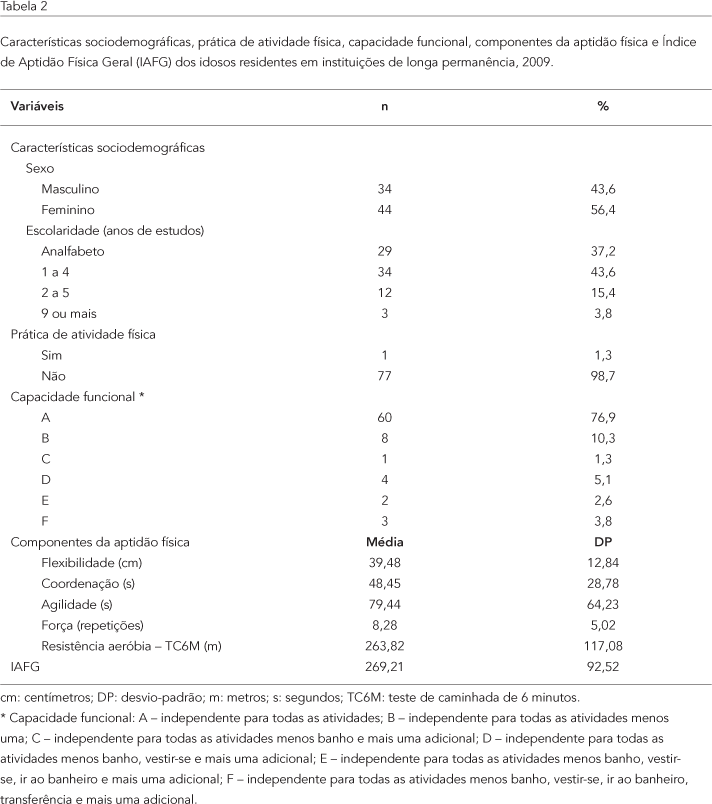This study analyzed the relationship between physical fitness and functional capacity in 78 residents of long-stay institutions for low-income elderly located in five regions of Brazil. The majority of the sample consisted of women, and mean age was 77.4 years (SD = 7.9). Physical fitness was assessed with the AAHPERD test, adjusted for institutionalized elderly. The Katz scale was used for functional capacity. The five components of physical fitness rated fair for flexibility, coordination, agility, and aerobic endurance and good for strength. The mean general physical fitness (GPF) index was fair. According to the findings, the greater the degree of dependency in institutionalized elderly, the lesser their strength and GPF level; meanwhile, better coordination and agility are associated with greater independence for performing activities of daily living. The results can contribute to appropriate physical exercise programs for maintenance and/or recovery of functionality.
Physical Fitness; Homes for the Aged; Aged




